Raghav Bahl & Ronnie Screvwala reveal secrets of a successful 2nd innings
The India Chapter of International Advertising Association hosted two high-decibel events – IAA Knowledge Series on ‘Reshaping Markets Through Disruption’, followed by the IndIAA Awards ceremony to honour creative advertising backed by real budgets from top 20 advertising categories – on September 16, 2016 in Mumbai.
Powered by The Free Press Journal, the IAA Knowledge Series on ‘Reshaping Markets Through Disruption’ featured media barons Raghav Bahl, Founder, Quintillion Media, and Ronnie Screwvala, Founder, UTV Group, Unilazer Ventures and Swades Foundation. The session was moderated by Mini Menon, Co-Founder and Editor, Indy Network. Both, Bahl and Screvwala have embarked on a new journey with their ventures The Quint, BloombergQuint and Swades Foundation, respectively. As the discussion unfolded, Mini Menon challenged both the media pioneers, asking them “Can you do it again?”, to which Bahl and Screvwala responded by sharing their thoughts on the ‘second innings’ (as Bahl liked to put in), challenges, the OTT space, lessons learnt and success mantra for budding entrepreneurs.
When asked about the motivation for the second innings, Bahl compared it to a cricket match, while Screwvala chose to compare it to ‘Kabaddi’. According to Bahl, in the second innings one knows if one has played well in the first. He said, “You know your ground. You know who your genuine teammates are and your conditions. Its more like the 3rd day of test match so you are tired. You are not a young, bouncy 20-year-old. The second innings is a wonderful rejuvenation. Talent and capital are not constraints. What are constraints are time and energy. You have comparatively a lesser amount of time. Money is always important and is everything. That is definitely a motivator for him. Being a dollar billionaire would be so much better than being a rupee billionaire.”
For Screvwala, motivation for a second innings is an ongoing journey. “I will choose Kabaddi here. Analogy of Kabbadi is you hold on to someone and you dont know what to do. I feel like I am in my first innings now. Glamourising Kabbadi has led to 30 per cent viewership from women, compared to 10 per cent for cricket. I stepped out of media and entertainment five years back. At various point different priorities come in our life. I miss the people but not the sector. When UTV morphed from a B2B to a B2C company, making movies was important. Now what is exciting is non-media,” he said.
Bahl emphasised on the need for better content to cause disruption in the media space today. “You cannot reinvent the model. It is a challenge competing against the likes of NDTV and BCCL. When we started CNBC TV18, the revenue line was Rs 5-6 crore. Today, the business news channel market is worth Rs 550 crore. CNBC is worth Rs 400 crore and after that I think ET Now is making Rs 100 crore. The penetration of the equity investing population is at 4 per cent, which is low, and therefore the equity knowledge has to grow better.We have to bring disruption through superior quality content. The final norm is that India is a late adopter in any case. For that we have to be independent and the editorial issues have to be edgier and bolder.”
He added, “If you are an original content creator then you will survive and win in the end. The Quint costs a fraction of CNN IBN to run. People only look at the revenue side when comparing new media to traditional media. In three years, Buzzfeed has gone from $10 million in revenue to $150 million. Their content keeps users heavily engaged. Content business can be disrupted only by creating better content. If you can build a compelling proposition for consumer, revenue will follow.”
Speaking about their journey right from the first innings, Bahl said, “I had only one reason to quit – bad regulation.” Speaking further, he said, “I did not want to exit, but that I could not dilute stake down to 15 per cent or 20 per cent. The issue was that I could not fund the 51 per cent stake, which I had to own as part of a regulation for the TV news business. The regulations are very first-generation thing. It was either diluting ourselves or exiting.”
On the other hand, Screwvala believes that Disney came at the right time, but sidelines himself from the benefits of hindsight. “I don’t believe in hindsight because it never works. Exits cannot be timed. You cannot rewind the clock, whether in media or in life. I have no regrets. It is as exhilarating now as it was when I started UTV. Being at the right place at the right time is important.”
According to the duo, Essel Group’s Dr Subhash Chandra is the most successful media entrepreneur and so is his business empire. Bahl said, “Media is much larger than the news space. Dr Chandra has done an excellent job. He did not have media background, but others had. But what is important is that every year Zee has made profits. As for Bennett, Coleman & Company, they have their own thought process and legacy.”
Screvwala added here, “What Dr Subhash Chandra has done is visionary. Others have built their legacy in a different way.” He also stressed on the point that sometimes being an outsider helps.
During the conversation, Bahl also highlighted that re-establishing the identity was a challenge. Elaborating further, he said, “The business could have been grown in a more calibrated manner, but everyone has to make choices. When I quit TV18, the loss of identity was an issue. The big thing for an entrepreneur is not the loss of day-to-day activity, but the loss of identity. One day you own many channels and the next day you don’t. Coming out of that was to re-establish your identity.”
When questioned about the thriving OTT market today, Screvwala opined, “Netflix and Amazon with Amazon Prime have figured out that India is a local market and expensive series will not be successful. At the core of this is whether the consumer is willing to pay. Making expensive series in India and then hoping that something will happen may not work. Creative disruption will happen for people who create content specifically for the digital medium rather than for traditional media companies who use digital as an extension. So, bring back of advertising economy. It is not a venture capital game, but advertising where it’s always going to be cost-minus. So, that’s the real disruption which will again happen by the people who really want to shake up this market.”
Bahl followed up saying, “You cannot mix content business with OTT business. Netflix, according to me, is an exception which proves it. It will have to figure out whether it is a content company or a technology company. Otherwise, it will fall into the same confusion like Yahoo. I decided early on that we (TV18) are a content company. On that note, Zuckerberg (Mark Zuckerberg, Facebook co-founder) sorted this issue very quickly. He decided that his is a technology company. So he has opened up his platforms to content creators.”
Content has become democratised and technology is the game changer now, how can one be disruptive in this environment? To this, Bahl replied, “As I said earlier, we are in the content business, not in technology. Disruption happens in technology business. Public media will be led by brands.”
Screvwala pointed out that Disruption is now the norm. “Same correction is happening in films as in VC. Core is the creative. The biggest problem in the movie industry is that the footfalls haven’t increased. People still watch content without paying for it. We (UTV) were an outsider in the movie business. The first five movies that we made were flops. But I was clear that we wanted to have a B2C brand and movies were essential for this,” he added.
When discussed how hard have they tried to rebuild the treadmill, Screvwala responded by saying, “Staying the course is very important. While there will be years when you are up and years when you are down. We did it for 20 years. Other people may have only done it for five years. In the process you bring in partners, diversify your team and build it again, but you must always stay the course.”
On the other hand, Bahl feels that in the second innings you have to reset your goals. “Colors cannot be done again. For me, to return to media from a digital standpoint made better sense. Digital gives you a chance to be disruptive in your content,” he added.
Sharing a piece of advice to young and budding entrepreneurs, Bahl said, “Don’t get seduced by the media. Go with the balance sheet. You haven’t become a superstar till you have a profitable balance sheet. It is not a sexy, glamorous game. Our fundamental problem was that we only looked at P&L and not at the balance sheet. It didn’t have strength. So, just grow with your balance sheet and not beyond that.”
Screwvala added here, “You build what you want to build and stay constant about it and your vision. Today’s ecosystem is forcing you to grow a little bit horizontal, but do not go by what investors want. If you are not curious, then this is not the space for you. Focus should be on creating work which is fun and impactful.”
And finally, when asked whether they could do it again, the media barons very confidently said a big “Yes”.
With the first-of-its-kind series, the IAA, Indy Network and the Free Press Journal aim to bring in real mavericks that have changed the business landscape.



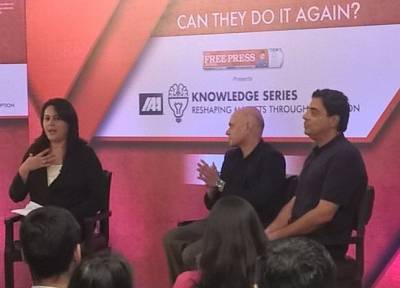

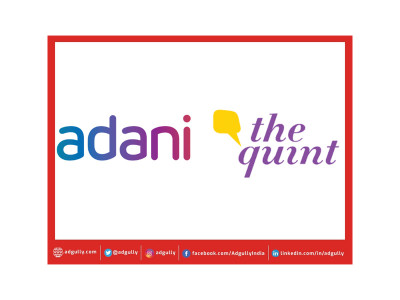
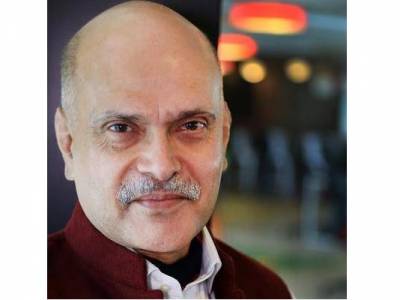


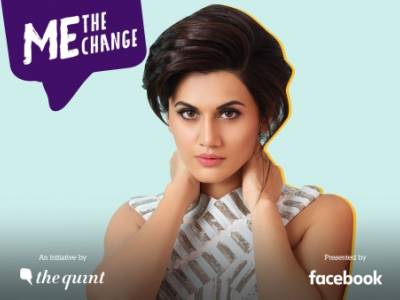

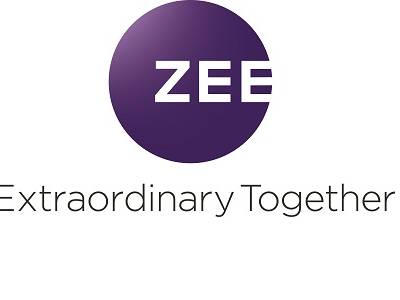


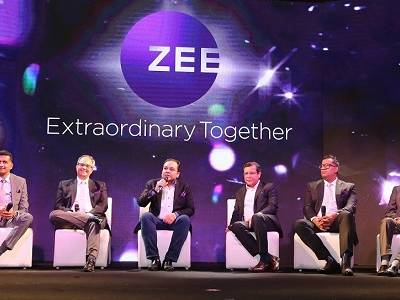
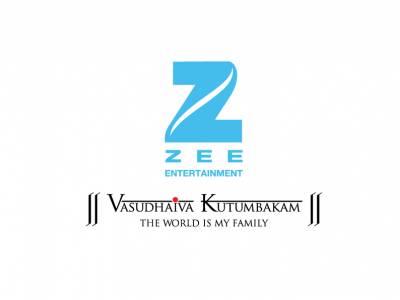


Share
Facebook
YouTube
Tweet
Twitter
LinkedIn